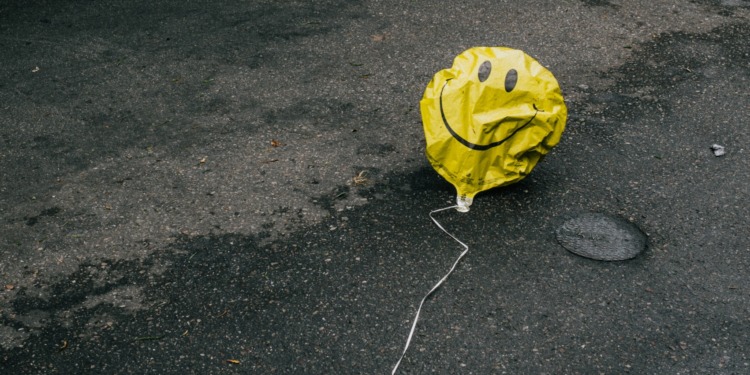In today’s society, there’s immense pressure to maintain an image of constant happiness and perfection. This pressure, amplified by social media platforms, leads to a competition about who lives the most glamorous life. From Bali’s lush rice terraces, and stunning waterfalls to the perfect blend of ancient ruins and vibrant culture the Riviera Maya has to offer, stopping by Emily’s Parisian settings and even the otherworldly landscapes in Iceland, life has become a race to see who lives the happiest and most extravagant life.
In her book “Días sin ti” (Days without you), Elvira Sastre observes, “When we are sad, we make superhuman efforts to disguise it, as if sadness is something we should be ashamed of.” This resonates with the modern phenomenon of toxic positivity, where individuals escape their problems, hiding behind a veil of apparent joy to conceal their authentic selves.
Current trends like “manifesting” and the law of attraction, designed to promote optimism, can unintentionally exacerbate this issue by encouraging constant happiness, dismissing any negative emotions or challenges.
Understanding Toxic Positivity
Psychologist and author Dr. Jaime Zuckerman coined the term “toxic positivity.” It refers to the excessive and insincere promotion of positive thinking, irrespective of an individual’s actual situation or experiences. Toxic positivity dismisses or invalidates negative emotions, struggles, or challenges, emphasising the need to maintain a facade of constant happiness.
This psychological strategy can suppress genuine emotional expression and discourage the acknowledgement of valid concerns.
Related Articles: Slow Living: The TikTok Trend Promoting Personal and Environmental Wellbeing | Are You Happy? That depends… | Talking to Strangers Makes Us Happier — Science Shows
The impacts range from preventing individuals from addressing underlying issues or seeking support, to emotional suppression, excessive performance pressure, and even a lack of empathy. The latter symptom is dangerously accurate to the compassion discrimination effects we see nowadays, because when individuals are encouraged to ignore or suppress their own pain, it becomes sometimes difficult for them to empathise with the struggles and emotions of others.
However, a critique of toxic positivity is not a call for abandoning positivity or denying potential for growth and resilience. Instead, it advocates for a balanced approach, acknowledging the complexity of human emotions and allowing authentic expression of both positive and negative experiences.
This balance is essential, as through facing challenges, embracing vulnerability, and acknowledging our suffering, we truly discover our humanity.
Art, Vulnerability, and Embracing Negative Emotions
Renowned author Brené Brown, known for her insights on vulnerability, beautifully stated, “Vulnerability is the birthplace of innovation, creativity, and change.” Indeed, our greatest strength lies in our ability to create beauty from the depths of darkness.
Despite battling mental illness and experiencing profound despair, Van Gogh created some of the most iconic and influential paintings in art history, such as “Starry Night” and “Sunflowers.” Frida Kahlo’s art was deeply intertwined with her physical and emotional pain. Through her self-portraits, she expressed her struggles, trauma, and resilience, creating powerful and introspective works. And let’s not forget Edvard Munch’s famous painting, “The Scream,” a haunting depiction of anxiety and existential dread.
Together, these artists remind us that our creative expression of suffering can be a source of healing, growth, and profound self-discovery.
Speaking from personal experience, creativity can indeed transform adversity. After the loss of my father, during a period of deep depression, I wrote my first book “TRECE.” This process allowed me to embrace my suffering, uncovering a newfound beauty emerging from the depths of darkness.
This isn’t a comparison to the aforementioned artists but an illustration of the potential for artistic expression that arises from acknowledging and embracing our suffering rather than hiding it. Vulnerability and authenticity allow us to connect with others and create meaningful art.
Embracing Life’s Challenges: True Positivity
So, let’s face it, life can be a relentless and unjust journey, where some individuals go out of their way to disrupt our path: the narcissists and evil have plagued humanity throughout history.
But true positivity lies not in denying our hurt, or hiding it by portraying a perfect world, or being afraid of it because that is not in line with the “law of attraction”. Instead, it resides in the courageous act of acceptance – letting the pain consume us entirely. Only then can we rise stronger, create art, and, tomorrow, extend a helping hand to those who will undoubtedly face similar challenges.
Editor’s Note: The opinions expressed here by the authors are their own, not those of Impakter.com — In the Featured Photo: Deflated smiley face balloon. Featured Photo Credit: Nathan Dumlao










